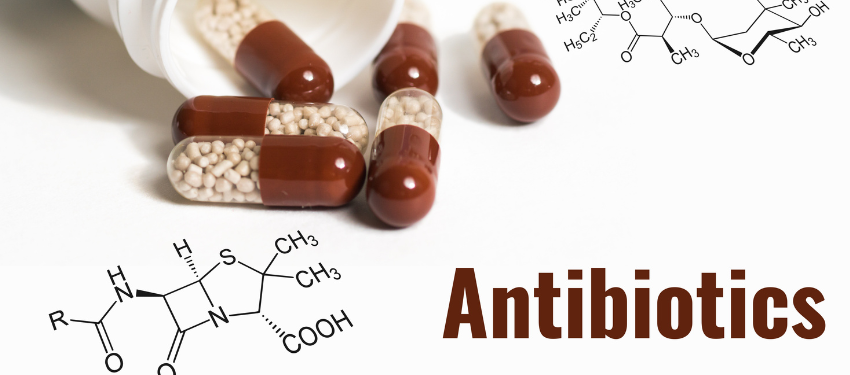The Emerging Crisis of Antibiotic Resistance

One of the greatest medical discoveries of the 20th century, antibiotics have saved countless lives by efficiently treating bacterial infections around the globe. However, the overuse and abuse of antibiotics have given rise to a formidable adversary, antibiotic resistance. This global health crisis threatens to undo decades of progress in healthcare, rendering once-treatable infections untreatable. Antibiotic resistance occurs when bacteria evolve and develop a resistant to the drugs designed to kill them. This alarming phenomenon is a global health threat, and raising social awareness about it is vital to combat this impending crisis effectively. This article intends to raise awareness of the serious problem of antibiotic overuse, its link to drug resistance, and the wide-ranging effects it has on people and society.
By Dr Vikrant Kumar, AIIMS, New Delhi
The Rising Threat
Antibiotic resistance is a complex issue with far-reaching consequences. It arises primarily due to the excessive and inappropriate use of antibiotics in both human and animal healthcare. When antibiotics are overprescribed or taken improperly, bacteria can adapt and develop resistance, making these potentially life-saving medications useless. This phenomenon is not new, as bacteria have also naturally developed resistance mechanisms over millions of years. However, the accelerated pace of resistance due to human activity is alarming. Factors contributing to antibiotic resistance may include:
- Overuse and abuse: Antibiotics are medications designed specifically to combat bacterial infections. They work by either killing bacteria or inhibiting their growth. Antibiotics are extremely effective when administered properly, but they have no effect on viral diseases like the flu or the common cold. This significant distinction is frequently missed, which contributes to the issue of antibiotic abuse. Antibiotics are often prescribed unnecessarily for viral infections like the common cold, where they are ineffective.
- Self-medication: Many people choose to self-diagnose and self-prescribe, buying antibiotics without seeking medical advice. This practice may lead to the misuse and ineffective use of antibiotics.
- Incomplete treatment:Patients frequently stop taking their antibiotics once they start feeling better, failing to complete the entire course. This premature discontinuation can lead to antibiotic resistance, as it allows surviving bacteria to develop resistance mechanisms.
- Overprescription:Due to patient pressure or a lack of conclusive diagnostic information, healthcare professionals occasionally prescribe antibiotics when they are not essential. This contributes to the overuse of antibiotics in clinical settings.
- Agricultural Use: The widespread use of antibiotics in agriculture to support animal growth and fend off sickness in confined spaces has aided in the spread of resistant bacteria. The food chain can propagate these resistant strains to humans.
- Global Travel: As people and goods move throughout the world, resistant bacteria can easily traverse international borders. This means that resistance emerging in one part of the world can rapidly spread to others.
Consequences of Antibiotic Resistance
The consequences of antibiotic resistance are dire and far-reaching:
- Increased Mortality: As antibiotic resistance spreads, the efficacy of current antibiotics declines. This is a serious challenge for contemporary medicine because it limits the options available for the treatment bacterial infections. Patients with antibiotic-resistant infections are at a higher risk of severe illness and death. Consequently, common infections like pneumonia, urinary tract infections, and tuberculosis are becoming harder to treat.
- Rising Costs of Healthcare:Infections that are resistant to antibiotics cost healthcare systems a lot of money. Patients with resistant infections often require longer hospital stays, more extensive treatment regimens, and specialized care. These factors drive up healthcare costs, affecting not only patients and their families but also society as a whole. The inability to treat infections effectively prolongs hospital stays, increasing healthcare costs and the risk of hospital-acquired infections.
- Economic Impact: The economic burden of antibiotic resistance is substantial, affecting healthcare systems, pharmaceutical industries, and agricultural practices. The higher expenses of treating antibiotic-resistant diseases burden healthcare systems and insurance companies, and rising costs restrict access to care for many people. Additionally, diseases caused by antibiotic-resistant bacteria result in the loss of productivity as individuals are unable to work and need lengthy sick leaves. Developing new antibiotics to combat resistance is also expensive and often financially unattractive for pharmaceutical companies, and thus, hindering innovation.
Global Implications
Antibiotic resistance is a global threat, impacting countries regardless of their level of development. Resistant bacteria can spread internationally, endangering public health worldwide. In addition, resistant infections can disrupt international trade and travel, affecting economies and creating public health crises.
Potential Solutions to the Crisis
Antibiotic resistance calls for a diversified strategy:
- Stewardship systems:By putting antibiotic stewardship systems in place at healthcare facilities, it will be possible to make sure that antibiotics are only used as needed and in the right circumstances.
- Raising Public Awareness:Education initiatives that stress the significance of finishing prescribed courses can enlighten the public about the proper use of antibiotics.
- Reducing Agricultural Use:The spread of resistant bacteria can be controlled by enforcing stricter restrictions on the use of antibiotics in agriculture and encouraging alternative methods.
- Research and Development:In order to tackle resistance, governments and pharmaceutical corporations must invest in the development of fresh antibiotics and cutting-edge therapies.
- International Collaboration:International cooperation is essential for tracking the spread of resistance, exchanging information, and coordinating crisis containment and mitigation actions.
Conclusion
If not addressed, antibiotic resistance poses a serious risk to the public’s health and could have catastrophic effects. At every level, from individual accountability to international cooperation, immediate action is required. We may expect to maintain the effectiveness of antibiotics and secure our ability to fight bacterial infections by embracing appropriate antibiotic use, encouraging research, and putting in place efficient rules, ensuring a healthier future for everyone. The moment to take action is now as the clock is running out.
